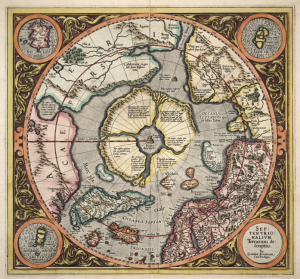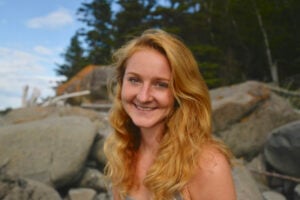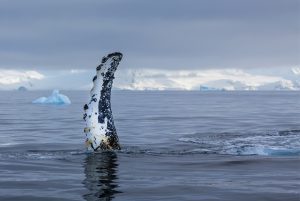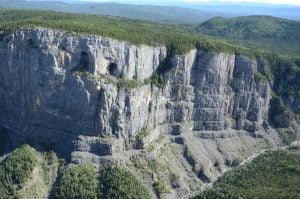Only a select few (fewer than 10 are women) have ever reached the South Pole solo. Côté’s new record places her in this elite community. She joins previous record holder Johanna Davidsson, who reached the South Pole in 38 days, five hours and 28 minutes. The first holder of the record, Hannah MacKeand, completed the trek in 2006 and is now the South Pole Area Manager for the United States Antarctic Program. These women inspired Côté to embark on her own expedition. “I saw them, and I thought they were really strong,” says Côté. “I wanted to know if I could do it. I think I wanted to learn more about myself by going out there and being in survival mode for a month. That is not something that happens a lot in a lifetime.”
From a young age, Côté wanted to be an adventurer and a filmmaker. She dreamt of visiting the South Pole after hearing stories about previous explorers like Ernest Shackleton and Roald Amundsen and wanted to see for herself what it was like to experience this part of the world.
As part of her journey, Côté raised money for Protect Our Winters (POW), an organization of professional athletes and industry brands uniting the outdoor community to advocate for policy solutions to climate change. Côté explains that climate change could lead popular ski destinations like Quebec to lose more than 20 days of skiing and good snow per year. “I see that if we are collaborating together, we can try and change that.” To support Côté, POW launched a fundraising campaign for individuals wanting to support her journey.
Now back home in Montreal, Côté says that she is grateful for the “small details” of life. “In Antarctica, it was always a lot of work just to survive, and, being home, everything is so easy.” She explains how even heating water and warming herself up after a long day in Antarctica was a huge task. “At the end of the trip, I thought I would never want to do something like that again in my life. But after one week of sleep, I feel like I can go again.”
For Côté, reaching the South Pole was not just about breaking records; it is also about breaking stereotypes and being a role model for young women. “I was inspired by great women, and now I want to support younger women,” she says. “I am there for them, and I don’t want people to be in competition together but to grow as a community. I think that is really important.”







